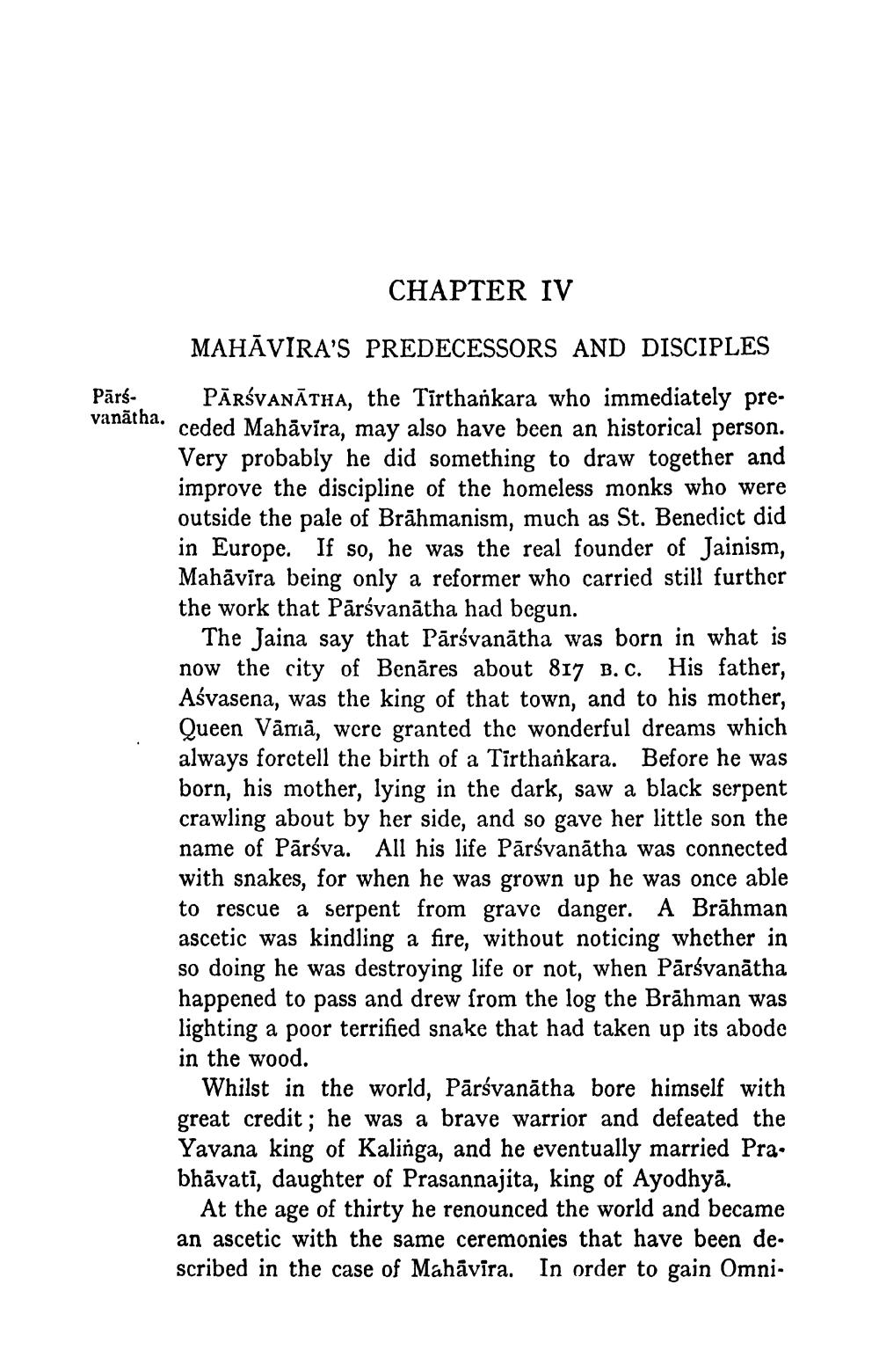________________
CHAPTER IV
MAHĀVIRA'S PREDECESSORS AND DISCIPLES
Pārs. PĀRÁVANĀTHA, the Tīrthankara who immediately prevanātha.
ceded Mahāvīra, may also have been an historical person. Very probably he did something to draw together and improve the discipline of the homeless monks who were outside the pale of Brāhmanism, much as St. Benedict did in Europe. If so, he was the real founder of Jainism, Mahāvīra being only a reformer who carried still further the work that Pārsvanātha had begun.
The Jaina say that Pārsvanātha was born in what is now the city of Benāres about 817 B.C. His father, Aśvasena, was the king of that town, and to his mother, Queen Vāmā, were granted thc wonderful dreams which always forctell the birth of a Tīrthankara. Before he was born, his mother, lying in the dark, saw a black serpent crawling about by her side, and so gave her little son the name of Pārsva. All his life Pārsvanātha was connected with snakes, for when he was grown up he was once able to rescue a serpent from grave danger. A Brāhman ascetic was kindling a fire, without noticing whether in so doing he was destroying life or not, when Pārsvanātha happened to pass and drew from the log the Brāhman was lighting a poor terrified snake that had taken up its abode in the wood.
Whilst in the world, Pārśvanātha bore himself with great credit; he was a brave warrior and defeated the Yavana king of Kalinga, and he eventually married Pra. bhāvati, daughter of Prasannajita, king of Ayodhyā.
At the age of thirty he renounced the world and became an ascetic with the same ceremonies that have been de. scribed in the case of Mahavira. In order to gain Omni




